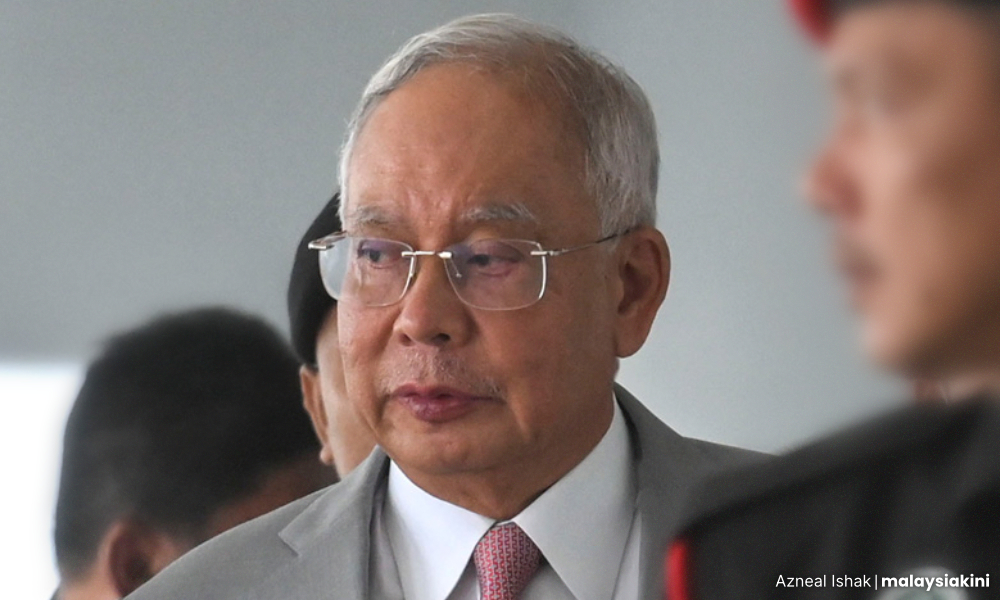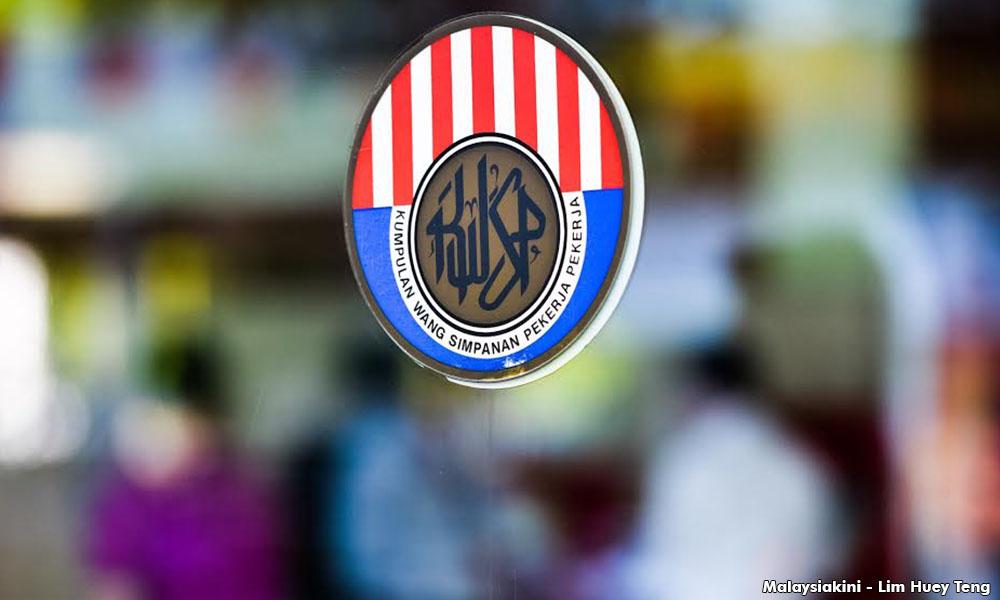
P Gunasegaram
Published: Aug 23, 2024 10:09 AM
COMMENT | Three Malaysian entities - the Employees Provident Fund (EPF), Sime Darby Property, and SP Setia are likely to shoulder losses of some RM250 million a quarter or RM1 billion a year from a five-year rental guarantee at the iconic Battersea development in London.
SP Setia and Sime Darby each have 40 percent in the venture while EPF has 20 percent.
The guarantees, reportedly for a period of five years, were given by the Battersea Power Station redevelopment project in London to buyers to encourage sales but the company is now saddled with a huge payment for income not met by purchasers.
It’s a standout example of how larger Malaysian entities have been seduced into making huge investments in markets they don’t quite understand and which can be quite volatile in search not just for profits but prestige and recognition overseas.
In July 2013 at a glitzy ceremony in London, the Battersea project organised a ground-breaking ceremony for their highly anticipated redevelopment project, worth some £8 billion (then RM40 billion) in gross development value.
Reportedly, about 500 guests were flown in business class from Malaysia for the ceremony and accommodated at considerable expense over there in a flashy demonstration of needless extravagance this country can’t afford.
So highfalutin was the ceremony, it was attended amongst others by then-British prime minister David Cameron, then London mayor Boris Johnson, and then Malaysian prime minister Najib Abdul Razak.
The star of the show at the groundbreaking ceremony in London was SP Setia CEO Liew Kee Sin who had spearheaded a move to redevelop London’s Battersea power station in Malaysia’s most expensive and ambitious overseas property development.
Published: Aug 23, 2024 10:09 AM
COMMENT | Three Malaysian entities - the Employees Provident Fund (EPF), Sime Darby Property, and SP Setia are likely to shoulder losses of some RM250 million a quarter or RM1 billion a year from a five-year rental guarantee at the iconic Battersea development in London.
SP Setia and Sime Darby each have 40 percent in the venture while EPF has 20 percent.
The guarantees, reportedly for a period of five years, were given by the Battersea Power Station redevelopment project in London to buyers to encourage sales but the company is now saddled with a huge payment for income not met by purchasers.
It’s a standout example of how larger Malaysian entities have been seduced into making huge investments in markets they don’t quite understand and which can be quite volatile in search not just for profits but prestige and recognition overseas.
In July 2013 at a glitzy ceremony in London, the Battersea project organised a ground-breaking ceremony for their highly anticipated redevelopment project, worth some £8 billion (then RM40 billion) in gross development value.
Reportedly, about 500 guests were flown in business class from Malaysia for the ceremony and accommodated at considerable expense over there in a flashy demonstration of needless extravagance this country can’t afford.
So highfalutin was the ceremony, it was attended amongst others by then-British prime minister David Cameron, then London mayor Boris Johnson, and then Malaysian prime minister Najib Abdul Razak.
The star of the show at the groundbreaking ceremony in London was SP Setia CEO Liew Kee Sin who had spearheaded a move to redevelop London’s Battersea power station in Malaysia’s most expensive and ambitious overseas property development.

There were several failed attempts by others to develop Battersea but the Malaysians thought they could go where angels had feared to tread. In an act of excessive bravado, they spent billions developing overdeveloped London, when money could have been better spent here.
Overwhelming influence
Liew had set up SP Setia in 1996 and for a while was a major shareholder. At the time of the ground-breaking ceremony, he was embroiled in a battle of sorts with SP Setia’s largest shareholder Permodalan Nasional Bhd or PNB, which controlled nearly 70 percent in 2012 after a takeover offer from 32.9 percent previously, even then the largest shareholder.
In a strange development, Liew was given management control of SP Setia for a period of three years as president and CEO in a “compromise” deal which meant he would be in control up to 2015.
Liew had mooted the idea of the Battersea redevelopment but did not have the money to undertake it. Hence, the idea of a 40-40-20 partnership. Although Liew did not put a sen into Battersea and did not control or have a major stake in Battersea or its controlling shareholders, he became the chairperson of the project and controlled it.
That kind of overwhelming influence over Battersea which was owned by two government-linked companies and Malaysia’s largest fund, a retirement fund at that, could have only come with strong political power which will have to extend right up to Najib of 1MDB fame.
According to this report in Kinibiz, newspersons who were there at the groundbreaking said Liew was hogging all the limelight. Some even said that he seemed to be promoting himself more than the actual development.
“There were a few hundred people present, maybe more than 500… some were with their wives, all flown in from Kuala Lumpur…and flown in business class at that too,” one of those present at the groundbreaking ceremony said.
“It was all about him (Liew) basically, not so much Battersea,” a newsperson said. This apparent show of pomp and grandeur raised a lot of eyebrows.
“Would there have been such expenditure if Liew was not leaving, and if it was his own company or if he had more than his two odd percent (2.76 percent in SP Setia)?” the newsperson asked.
Major conflict of interest
Fast forward 10 years and with many instances of Liew having conflicts of interest at both SP Setia and Battersea, there are emerging serious problems at the Battersea redevelopment which may be running at RM250 million a quarter or RM1 billion a year if things don’t improve.
Results released by SP Setia for the quarter ended June 30, 2024, showed that losses from associates, mostly Battersea, exceeded RM100 million. Its share price tumbled post the results announcement.
SP Setia so far does not seem to have made a public clarification but its share price has been slipping, along with Sime Darby Property.
During his three-year end term at SP Setia, Liew was syphoning off senior and mid-level staff to a direct competitor set up by his son and associates, EcoWorld, which would eventually have developments right next to SP Setia’s.
And then, while he was chairperson and key mover of the Battersea development, he entered into a deal to develop a piece of property just a proverbial stone’s throw from Battersea, in a major conflict of interest he had admitted.
Now, the town council under which Battersea falls has strongly indicated its desire for the development to focus more on affordable units, which may force a reduction in margins at Battersea.
In a statement to the Standard, Aydin Dikerdem, Wandsworth’s cabinet member for housing, said: “We are determined to maximise affordable housing across all new developments in Wandsworth.
“Battersea Power Station needs to understand that the council expects them to consider all possible means to increase the percentage of affordable housing from an unacceptably low level seen in earlier phases.”
Damage done
The lessons to government-linked companies such as SP Setia and Sime Darby Property and government-linked investment companies such as EPF and PNB should be clear.

At SP Setia, you simply cannot allow a hostile CEO to be in charge when he is opposed to the major shareholder, PNB. It’s a mystery how a management agreement kept him in sole management control for three years and gave him the option to sell his stakes at RM3.95.
That allowed Liew plenty of time to do much damage to SP Setia by transiting much of his senior management team to the competing EcoWorld group, which became a competitor right at SP Setia’s doorstep in many areas. Till today, SP Setia seems not to have fully recovered from that.
The same mistake was repeated at Battersea. He was allowed to remain as chairperson despite SP Setia controlling 40 percent of the development, giving him more or less free rein to run the company and to allow him to scout around and purchase a property nearby.
Eventually, he took over the development of an area close to Battersea - while he was chairperson of Battersea, a clear conflict that should not have been tolerated at all.
The question that needs to be answered is are there other skeletons in the cupboard of both Battersea and SP Setia of the kind that caused the latest losses because of a five-year profit guarantee? How long more will they last and what impact will they have?
It’s high time PNB, SP Setia, and EPF did something to protect their respective stakeholders’ interests and ensured that investments are properly assessed before money is put in. They should not be made to satisfy the prurient interests of corporate and government leaders.
P GUNASEGARAM, a former head of equity research, laments the lack of thought given to investments and the rise of individual greed over common interests.

We often passed by bus Battersea Park with its iconic old power generation Cone tower not yet demolished many many moons ago vacationing in London. Even with a tinge of some misplaced pride then too at a Malaysian development in London. I agree with this Writer wholeheartedly and more. But most of all the lesson is not about a Malaysian CEO turned hostile but about the need to rewrite Economics. Decisions on where State related companies and institutions should invest should be where it creates employment and economic output for the nation. Not where it creates employment and economic output for other nations! EPF priorities must be to create jobs and economic activity for Malaysia and stay away from high faluting glamourous foreign project which does nothing to the local economy. Sure it can make lots of money for EPF to declare dividends but EPF economics cannot see that EPF dividends benefits mainly EPF high networth contributors. Could we not change Economics main objectives from blind profit maximisation to targetted maximisation of jobs, and increased wages and salaries for the people? Aah we can't change because that comes from a western subject that must be respected and adhered to at all costs. An all too familiar and sad theme that still fogs the present day Muslim minds.
ReplyDelete(Note: originally posted to an all Muslim audience group but Im thrilled if others also begin to see the flaws of western world view education)
Zahid Aziz.
Gerakan Keadilan Monetari /Movement for Monetary Justice.
EPF has made a lousy investment most probably influenced by the ATAS.
DeleteMany analysts had exposed the Battersea project as a likely money-pit right from the start, over a decade ago.
ReplyDeleteDon't know whether it is a bad business decision, corruption or fraud that led the Malaysian entities to go where so many other refused to tread.
Probably a combination.
Much of the gold from the Najib era has turned into shit.